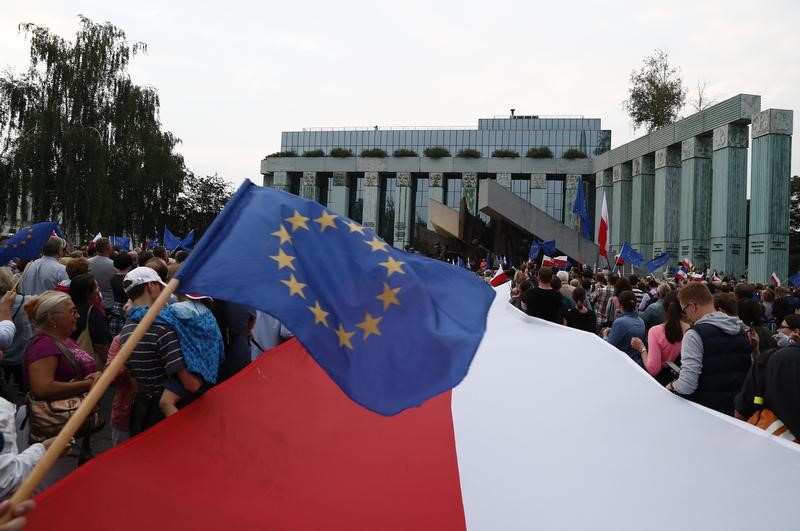By Jan Strupczewski
BRUSSELS (Reuters) - The European Commission called on Monday for Poland to seek European legal advice on two draft judicial reform laws put forward by President Andrzej Duda, to check that they comply with European democratic standards.
In July, Duda, an ally of Poland's ruling nationalist Law and Justice (PiS) party, unexpectedly vetoed its plan to overhaul the judiciary, after nationwide protests and warnings from Western allies that the changes would undermine the independence of the courts.
Earlier on Monday he presented his own drafts of the two vetoed laws, proposing a greater role for himself over the nomination of judges.
The European Commission said Poland should seek the opinion of the Venice Commission of the Council of Europe on the drafts. The commission provides legal advice to its members to help them bring their laws and institutions into line with European standards.
"It would be extremely helpful if these two draft laws... would be given to the Venice Commission for advice," European Commission First Vice President Frans Timmermans told a news conference.
"We will make our comments on that also once we have analysed it," he said, referring to the ongoing unprecedented process of EU monitoring of Poland's adherence to the rule of law launched at the beginning of 2016.
The Venice Commission ruled last year that laws passed by the PiS government on the country's Constitutional Tribunal were incompatible with European standards, prompting the European Commission to launch its rule-of-law monitoring procedure.
Timmermans said the Commission's monitoring of Poland's democratic practices had received broad support from national governments, which stressed that the rule of law was fundamental for the functioning of the European Union as a whole.
He said he would be happy to receive Polish Justice Minister Zbigniew Ziobro and Foreign Minister Witold Waszczykowski in Brussels or himself go to Warsaw to continue the dialogue with Poland that other governments were so keen on.
Speaking to reporters after delivering an update on the rule of law monitoring process in Poland to EU ministers, Timmermans said he had broad support to continue.
"What is most important to me is that everybody around the table said: Rule of law? It is not an option, it is an obligation... it is the fundament of European cooperation... it concerns us all," he said.

"I was encouraged by the broad, broad support I felt in the Council for trying to find a solution. But there is still a lot, a lot we need to do before we can say that the problem has been solved," Timmermans said.